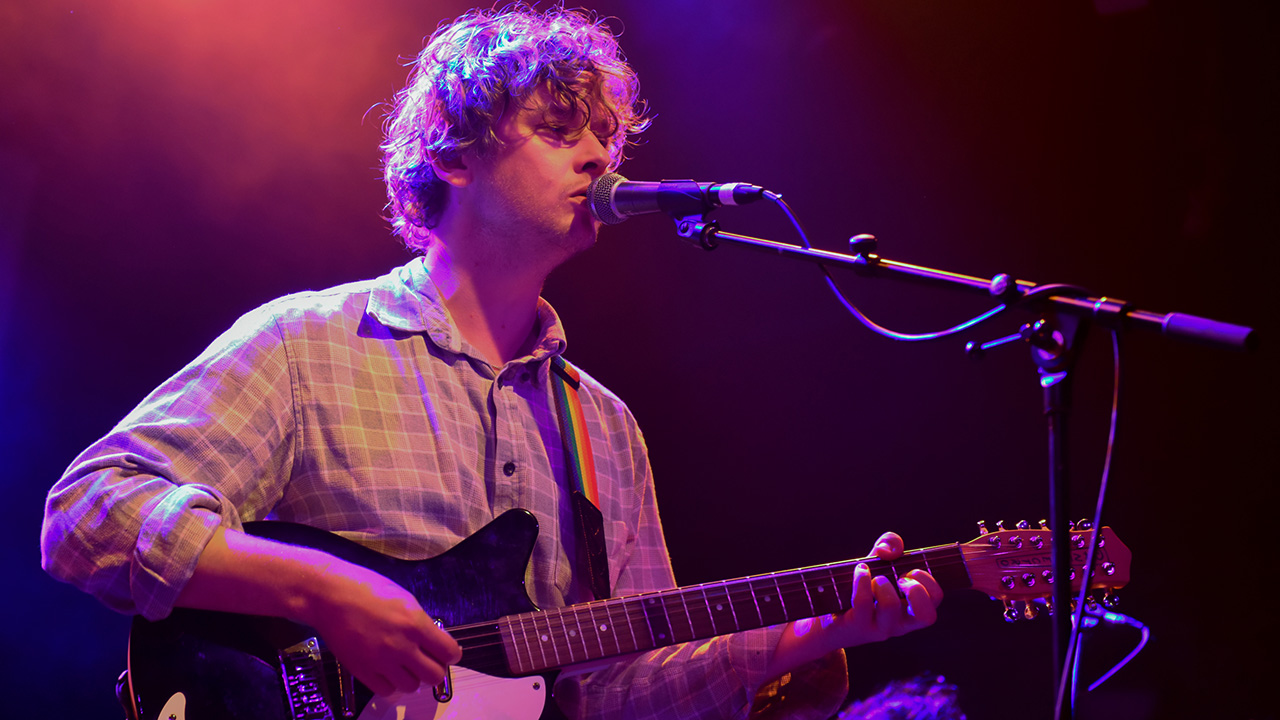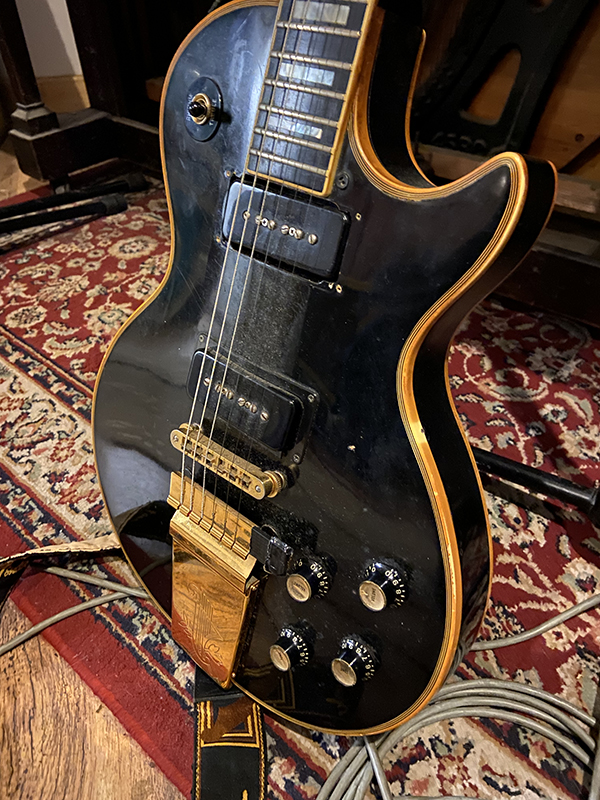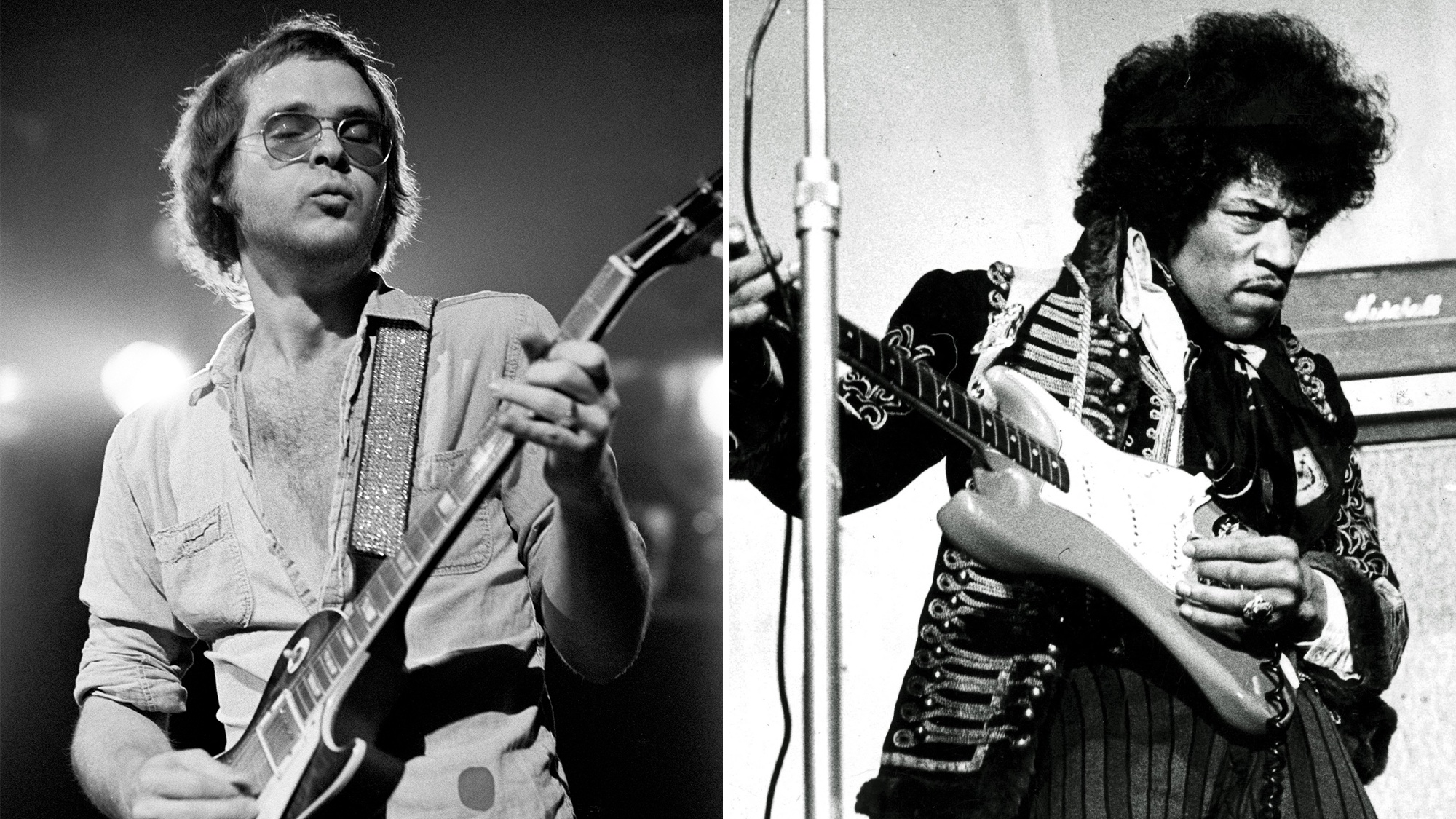“Noel Gallagher gave me one of Peter Green’s Gibson Les Pauls. Johnny Marr had given Noel a guitar, and maybe he felt it was customary that he do the same”: Bill Ryder-Jones on his ascent to UK indie rock royalty
The former Coral guitarist has gone on to release captivating solo material. He shares stories of recording with Noel Gallagher, tracking solos with Arctic Monkeys’ Alex Turner, and why he isn’t as good a player as he used to be – but he’s OK with that

As a teenager, Bill Ryder-Jones was the lead guitarist of The Coral, whose single Dreaming of You was nominated for the Mercury Music Prize in 2002. He didn’t just play guitar on the track – which came off the band’s self-titled debut record – but also played trumpet and nabbed a co-producer credit.
Ryder-Jones stuck with The Coral until 2008 before going solo, taking up session work with Arctic Monkeys’ Alex Turner and launching Yawn Studio, where he produces artists from his hometown village of West Kirby.
With his trusty ’63 Gibson ES-335 and one of Peter Green’s guitars in hand (more on that later), Ryder-Jones is as busy as ever on the recorded music front, with his latest record lechyd Da having landed via Domino Records on January 12.
At 40, and with a host of credits under his belt, his viewpoint on the guitar has changed – as has his skillset. “I think I might struggle to play some of my parts from when I was 16,” he laughs. “But I think I write better guitar parts now, as I’m looking for very sweet-sounding and melodic things.”
How did your latest record, lechyd Da, get started?
“It started after I met this girl, and we’d send each other songs that meant something, as you do. I’d send her one, she’d send me one, and we made a collaborative playlist on a streaming site with all sorts of songs that I loved.
“The songs she’d send back all had something in common – I don’t know what but there was something in them, and it became an idea to make a record that had the same feeling as the songs we’d been showing each other. It was quite romantic.”
All the latest guitar news, interviews, lessons, reviews, deals and more, direct to your inbox!
Where are you pulling inspiration from?
“In terms of guitar playing, I’m not sure I think of myself as that much of a guitarist anymore. It used to be my whole life where I’d be sitting around at home and playing guitar. But now I use it as an instrument like I’d use any other.
“I still love [The Verve’s] Nick McCabe’s playing. His choice of notes and textures were great – he was a really wild player. And in terms of songwriting, I’m still sort of in love with the same kinds of things I loved when I was 16: Paul Simon, Brian Wilson, and The Beatles, of course.”
What did your process look like in terms of dialing in the sounds to achieve the overall vibe on lechyd Da?
“My approach is quite simple. I love my nylon-stringed guitar, which is Spanish. It really works well for my songs, and I have a mic technique that works well. As for the electrics, I’ve got a 1963 Gibson ES-335, so it’s either that or – and this is a bit of a brag – one of Peter Green’s Gibson Les Pauls, which does dual sounds well.
Noel Gallagher purposefully rubbed off Peter Green’s signature to make a point to the guy in the guitar shop
“I have a ’57 Fender Custom Deluxe amp that works nicely, and a Fender Bassman. It was mainly those two, so there’s no real trickery. When I’m playing, if it’s a lead part, it’s got to serve a purpose. I’m not quite as fluent as I probably was in my 20s, so it’s mainly about finding the right melody.”
So how did you end up with the Peter Green Les Paul?
“Oh, well! It’s another name drop – it was given to me by Noel Gallagher in 2006 when I was 23. The Coral were making a record in Noel’s studio, Wheeler End Studios, and I’d used this Les Paul for most of it, not knowing it was Peter Green’s.
“I think Johnny Marr had given Noel a guitar, and maybe he felt it was customary that he do the same. I had no money at the time – my only good guitar was my 335. Of course, I had guitars that I loved, but in terms of guitars that were worth more than £500, the 335 was all I had.”
Did Noel tell you how he’d ended up with it?
“When he gave it to me he told me a story about how a guitar shop owner didn’t want to sell it to him. The guy didn’t know who Noel was – he’d somehow not heard of Oasis. But Noel saw the guitar on the top shelf behind the counter and said, ‘Can I have a go with that Les Paul?’
“And the guy behind the counter goes, ‘Erm, you do know that was Peter Green’s, and it’s signed by Peter Green, right?’ He reluctantly got it down. Noel spat on his T-shirt and rubbed off the signature! And he said, ‘Doesn’t matter now – I’ll take it anyway.’
“That’s a very Noel thing to do and a very funny story. I woulda loved for it to have Peter Green’s signature. I probably would have sold it by now, and had a house! But I’m so very thankful I didn’t do that. It’s a cracking guitar. It’s got the out-of-phase pickup, and it’s so bloody heavy, so I can hardly play it.”

Just so we’re clear, was that a fake signature that Noel rubbed off, or did he rub off Peter Green’s actual signature?
“Oh, he purposefully rubbed off Peter Green’s signature to make a point to the guy in the guitar shop. Noel thought he was being a bit rude, you know?”
Noel is a great example of someone who plays guitar but probably identifies as a songwriter first. Do you see that in what you’re doing now?
“I couldn’t make any comparisons between Noel Gallagher and myself. He’s fucking Noel Gallagher to start! Obviously I remember how Oasis changed my life, being a Northern lad in the ‘90s, but I consider myself a musician first. I like making music, and it happens that I sing on it, too, because that’s what you do, right?
I don’t think I’m as good as I was… Back then it was my whole life; my job was being in a band
“I’ve met Noel on several occasions, and – especially in my early days – I had the greatest respect for Noel’s playing. His style is very signature. You don’t have to be overly dexterous as it’s a lot of blues pentatonic.
“That was a great way to have a great introduction to playing rock ‘n’ roll when you didn’t have any sort of musical education. His most powerful songs are largely major chord-based, and there’s not a lot of madness going on in the chord structures, which I like because I like to keep things simple.”
You made some outstanding music with The Coral. How have you changed as a guitarist since then?
“I don’t think I’m as good as I was. I’m better in some ways, but I’m also not as good as I was. Back then it was my whole life; my job was being in a band.
“I was actually out last night with [Coral rhythm guitarist] James Skelly for a few drinks. He’s always been very sweet about my playing and my importance in the early days. But I don’t know – I was always trying to impress him!
“That’s really what I was striving for back in those days. These days, I can still make some decent sounds, but I don’t always get a chance to do some of that stuff because the music doesn’t call for a lot of big guitars. I’m much more interested in sort of subtle lines and earworms.
“One thing that’s remained constant for me is the playing of a guy like John Head from Shack. He’s always tasteful and never does too much. I’m much less impressed by guitar playing than I was, and I’m more into melodies now.”
You also contributed some guitars to the Arctic Monkeys‘ Fireside from AM. What was that like?
“The AM thing was done remotely, but I knew Alex Turner because I’d already worked with him on his solo EP Submarine. I love Alex’s writing, and I did learn a lot because his songwriting craft is up there with the very best.
“He’s got an amazing mind for creating a song and knows where to take a song. And he’s got a very singular, individual approach to writing lyrics. He’s not a fucking bad guitarist either! He can construct amazing melodies; he’s one of the greatest writers alive.
I used to stay in one position and let the chords move around me. I’m now more interested in jumping through the scales of corresponding chords
“But AM was done while the Arctic Monkeys were in LA and I was in London. I had done a few lines, and he said, ‘I want you to do something that Bill would do.’ I felt like I should do something the Arctic Monkeys would do, but Alex said, ‘We’ve asked you because we want you to do Bill.’
“After that, things were much easier. I put a reverb pedal on and just did what came naturally. The whole experience was wild – an honor, really. But he hasn’t asked me again; they haven’t asked me back, so I couldn’t have been that good!”
Alex is always open-minded about what he’s doing; maybe he’ll ask again in the future.
“And maybe I’ll say yes again in the future! I could do with the fucking money, I’ll tell you that much!”
Which of the songs on lechyd Da is most representative of the player you are today?
“I think there’s some really nice guitar on How Beautiful I Am. It’s got that sort of thing I was talking about earlier, and it’s got one of the few guitar solos on the record. It might be the only solo, so I’d have to pick that.
“Playing over minor chords like that can be a challenge because when you use blues pentatonics, it takes things somewhere else. It makes things a bit more melodic, whereas I used to largely stay in one position and let the chords move around me.
“I’m now more interested in sort of jumping through the scales of corresponding chords; I think that makes things more conversational. But in terms of writing, all these songs are incredibly meaningful. That’s why they’re on the record.”
What’s next for you?
“I’m just been on tour and I’ve got some production stuff on tap, too. I’ve got some good artists booked into my studio. Then I’m going to write another EP for the end of the year, I believe, to ‘keep the campaign alive’, which was the phrase used to sell me on the idea!
“But now, I’m gonna go for a pint! I’ve been at it all day and it’s meant to be my day off, so I’m going down the pub to relax a bit. Other than that, I try not to think too far ahead.”
- Iechyd Da is out now.
Andrew Daly is an iced-coffee-addicted, oddball Telecaster-playing, alfredo pasta-loving journalist from Long Island, NY, who, in addition to being a contributing writer for Guitar World, scribes for Bass Player, Guitar Player, Guitarist, and MusicRadar. Andrew has interviewed favorites like Ace Frehley, Johnny Marr, Vito Bratta, Bruce Kulick, Joe Perry, Brad Whitford, Tom Morello, Rich Robinson, and Paul Stanley, while his all-time favorite (rhythm player), Keith Richards, continues to elude him.







